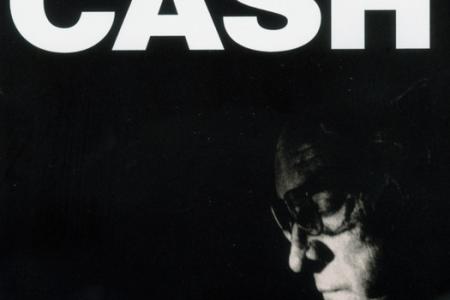Brain implant turns one man into a Johnny Cash fanatic
Mr B had a modest interest in music.
For decades, he listened to the Beatles, the Rolling Stones and Dutch songs.
But all that changed after the Dutch man got a brain implant.
Suddenly, he became a Johnny Cash fanatic. Ring Of Fire, Folsom Prison Blues and Sunday Morning Coming Down became his favourites.
Singer-songwriter Cash was widely considered one of the most influential American musicians of the 20th century
Mr B would listen only to Cash.
That's not even the weirdest part.
Whenever the batteries of the implant ran out, Mr B reverted to his old taste in music.
This unusual tale was published in a research journal Frontiers of Behavioral Neuroscience with the title "A case of musical preference for Johnny Cash following deep brain stimulation of the nucleus accumbens". (Yes, quite a mouthful.)
We've broken down the science for you.
In which Mr B gets a brain implant
Mr B had been suffering from extremely severe obsessive compulsive disorder (OCD) for 46 years.
In 2006, he was treated with deep brain stimulation. He got an implant to stimulate his brain constantly with electricity.
In which Mr B falls in love with Cash
About six months later, he heard Ring Of Fire on the radio. Thus began his love affair with Cash.
The report stated that he was "deeply moved by the raw and low-pitched voice of the singer".
"From this moment on, Mr. B kept listening simply and solely to Johnny Cash and bought all his CDs and DVDs," the report said.
"He reports that there is a Johnny Cash song for every emotion and every situation, feeling happy or feeling sad and although Mr. B played almost simply and solely Johnny Cash songs for the following years, the music never starts to annoy him."
In which Mr B is a happier, more confident man
Was this another form of OCD? Apparently not.
"Listening to Johnny Cash is pleasurable and not preceded by anxiety, nor is discomfort provoked when the patient is prevented from listening," the report said.
Mr B was having "far less OCD, anxiety and depressive symptoms" and "felt highly confident ".
Well Mr B, we're glad for you.
Source: Frontiers of Behavioral Neuroscience, The Washington Post, Business Insider Malaysia
Get The New Paper on your phone with the free TNP app. Download from the Apple App Store or Google Play Store now

